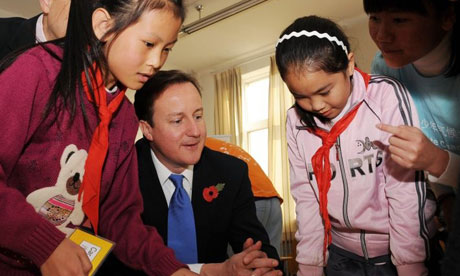Proposals for tougher visa requirements put language skills at centre of bid to reduce bogus foreign students.

UK ministers are expected to put in place tougher English language requirements in a bid to reduce the number of students coming to Britain to study at below degree level.
Proposals to raise minimum English language skills levels were part of a range of options published by the Home Office last month which, if implemented, could see tens of thousands of students from outside the EU turned away.
Two-thirds of the non-EU migrants who enter the UK come on student visas and the government must bring down these numbers if it is to fulfil its pledge to cut net migration from 200,000 to below 100,000 by 2015.
Consultation on the proposals closes at the end of this month, but ministers are expected to move quickly to make changes to the rules for the Tier 4 student visa category.
Setting out the proposals, home secretary Theresa May said: "We want a student visa system which encourages the entry of genuine students coming to study legitimate courses – that means students who are equipped to study their courses."
Under current rules, students studying at below degree level must prove that they are already at level B1 in English. That level, referring to the Common European Framework of Reference, is approximately equivalent to intermediate language skills.
The UK Border Agency, which published the consultation, wants to raise that minimum level to B2, or "upper-intermediate competency", and to extend the requirement to all students, not just those studying at below degree level.
Under the proposals, only results from approved language tests will be accepted as proof of proficiency.
The UKBA consultation document stated: "Raising the language bar will act as evidence of a student's fitness to complete the course in English, as well as assisting with their integration with other students. Secure language testing will ensure that the person applying for entry is the person who sat and passed the language test."
Most UK universities, which already ask foreign students to meet proficiency requirements at or above B2, are unlikely to be affected by the proposals. The UKBA's intended target are private pre-degree-level colleges that have lower entry requirements and less independent scrutiny of language skills.
But the government has shown that it is willing to listen to lobbying from the education sector. Just days after the UKBA consultation was launched, immigration minister Damian Green announced that he was extending the period that English language learners can remain in the country under the student visitor visa from six to 11 months.
Green said the temporary extension, which came into effect at the start of the year, was in response to representation from English language teaching providers who argued that learners would need more time to reach higher minimum levels.
"This concession is intended to create flexibility to allow legitimate English language colleges to continue to offer opportunities to genuine students. I shall monitor closely the practical impact to ensure that it does not become a loophole," he said.
Tony Millns, chief executive of English UK, which represents English language schools, said: "This change will provide a route for English language students who are relative beginners and are likely to need a course longer to reach level B1."
No comments:
Post a Comment